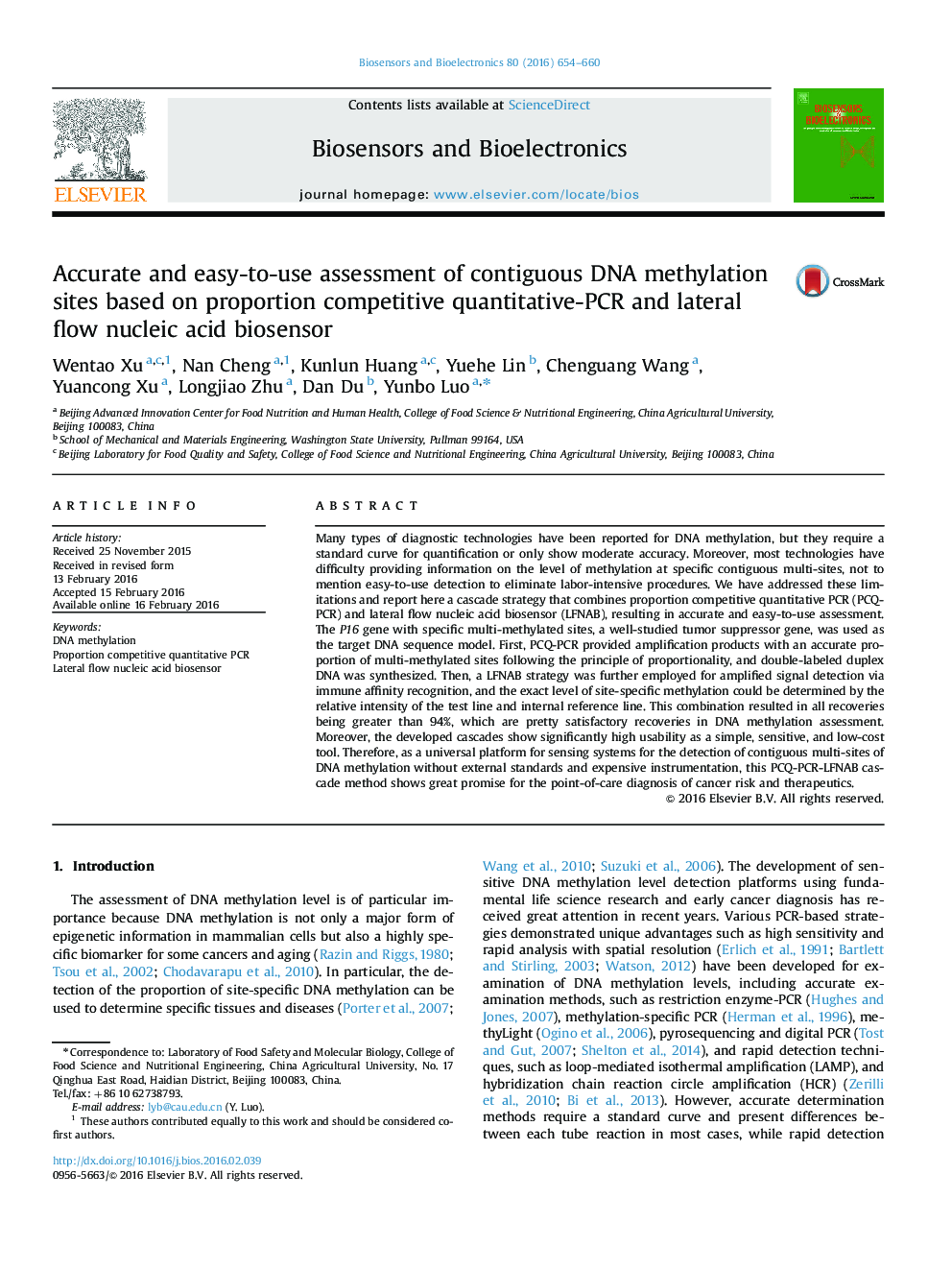| Article ID | Journal | Published Year | Pages | File Type |
|---|---|---|---|---|
| 7231023 | Biosensors and Bioelectronics | 2016 | 7 Pages |
Abstract
Many types of diagnostic technologies have been reported for DNA methylation, but they require a standard curve for quantification or only show moderate accuracy. Moreover, most technologies have difficulty providing information on the level of methylation at specific contiguous multi-sites, not to mention easy-to-use detection to eliminate labor-intensive procedures. We have addressed these limitations and report here a cascade strategy that combines proportion competitive quantitative PCR (PCQ-PCR) and lateral flow nucleic acid biosensor (LFNAB), resulting in accurate and easy-to-use assessment. The P16 gene with specific multi-methylated sites, a well-studied tumor suppressor gene, was used as the target DNA sequence model. First, PCQ-PCR provided amplification products with an accurate proportion of multi-methylated sites following the principle of proportionality, and double-labeled duplex DNA was synthesized. Then, a LFNAB strategy was further employed for amplified signal detection via immune affinity recognition, and the exact level of site-specific methylation could be determined by the relative intensity of the test line and internal reference line. This combination resulted in all recoveries being greater than 94%, which are pretty satisfactory recoveries in DNA methylation assessment. Moreover, the developed cascades show significantly high usability as a simple, sensitive, and low-cost tool. Therefore, as a universal platform for sensing systems for the detection of contiguous multi-sites of DNA methylation without external standards and expensive instrumentation, this PCQ-PCR-LFNAB cascade method shows great promise for the point-of-care diagnosis of cancer risk and therapeutics.
Keywords
Related Topics
Physical Sciences and Engineering
Chemistry
Analytical Chemistry
Authors
Wentao Xu, Nan Cheng, Kunlun Huang, Yuehe Lin, Chenguang Wang, Yuancong Xu, Longjiao Zhu, Dan Du, Yunbo Luo,
